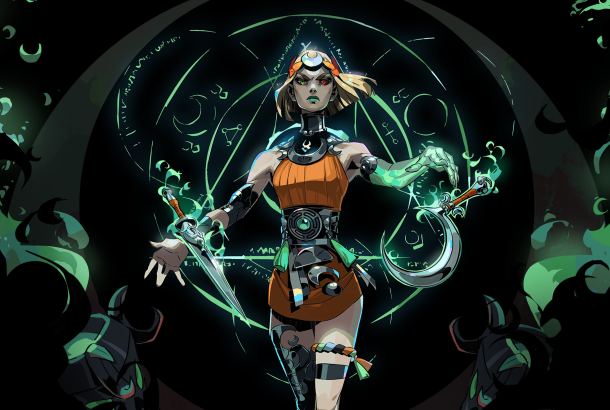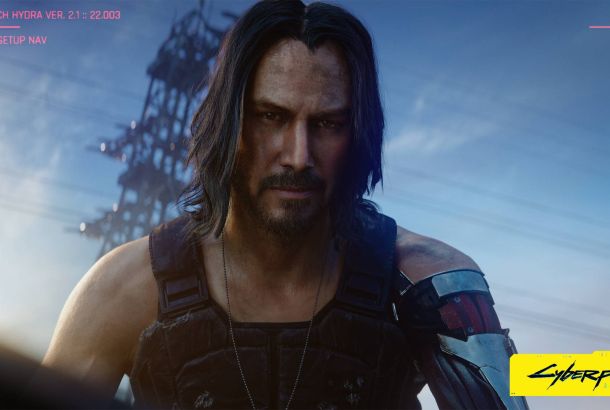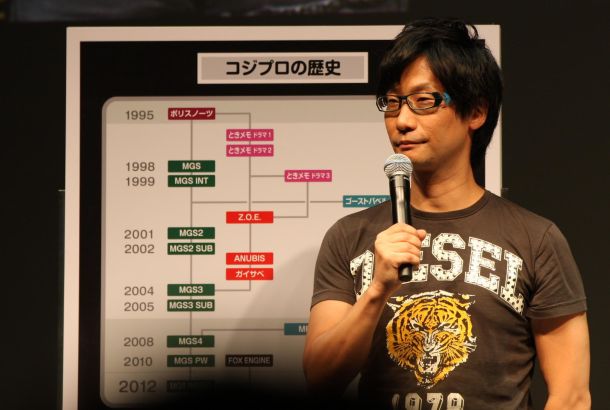A timeline of the Unity controversy
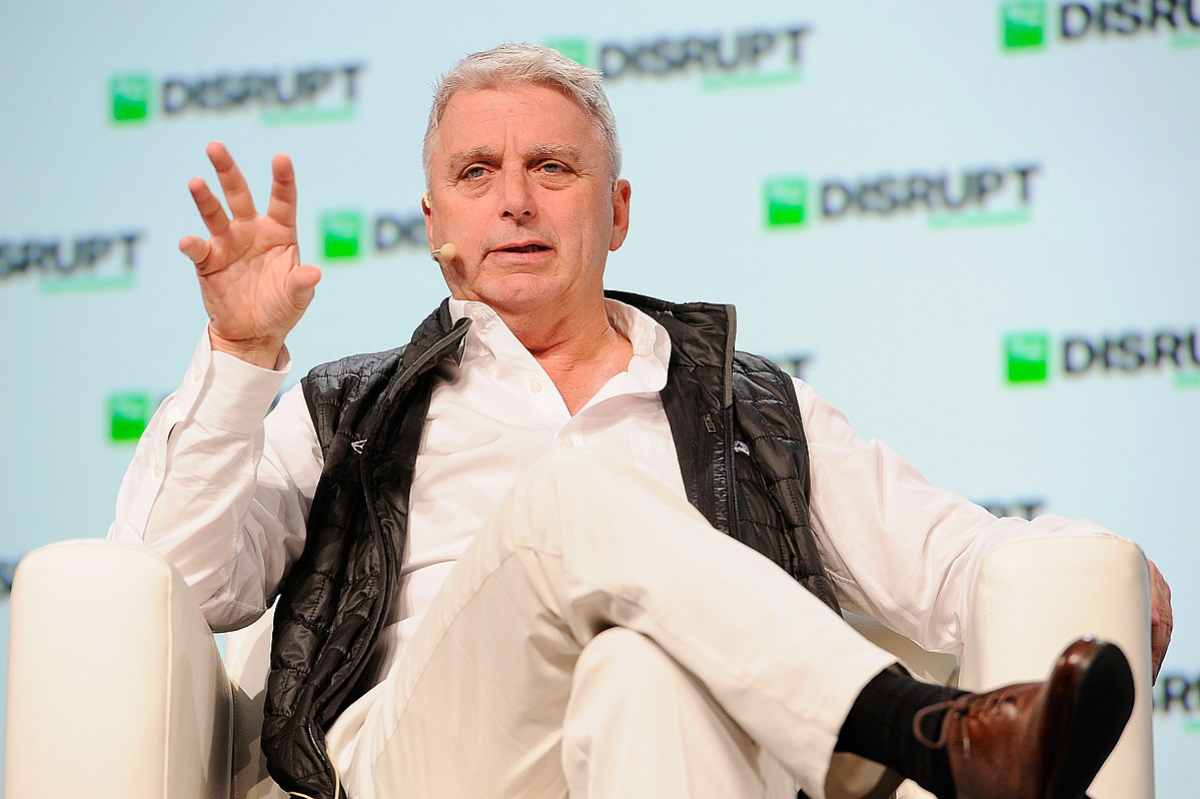
For over a decade, the Unity games engine has been the go-to toolset for video game production and was used to build a number of popular titles, such as Pokemon Go, Cuphead, and Hollow Knight. However, recent pricing changes have resulted in backlash and distaste amongst developers, which may have been the tipping point towards CEO John Riccitiello’s subsequent stepping down from his role.
September 12, 2023
Unity Engine’s company announced a new “Runtime” fee. It was stated that starting from January 1 2024, Unity will charge developers a fee as high as $0.20 per install, depending on the license the developer has with Unity, each time a game using the engine is downloaded. This fee will be charged when sales reach a threshold of $200,000 in revenue over 12 months and 200,000 total installments.
Unity usually makes money off of its engine by sharing revenue with companies that make successful products, but this change would be skewed in Unity’s favour, utilising questionable metrics that are likely not to be readily accessible to companies outside of Unity itself. On top of that, developers subsequently noticed that Unity had revised its terms of service, suggesting that these changes could be applied retroactively and that they would still apply to companies that had signed a licensing contract with Unity before the Runtime Fee’s implementation.
Indie game companies, the most vulnerable targets of this new change, have expressed their opposition to Unity. On X (formerly known as Twitter), developers of the hit indie game Cult of the Lamb, Massive Monster, notably voiced their unhappiness with the new policy.
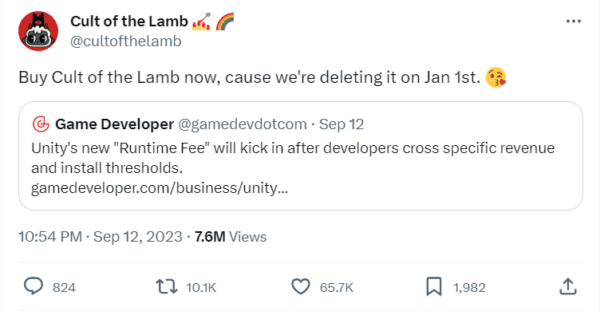
Unity later issued a FAQ on the same day the new changes were released in order to attempt to clarify the changes. They stated that only full games’ initial installations are subjected to the Runtime Fee, and denied that the licensing change would apply retroactively to games released before 2024. “The Unity Runtime fee will not impact the majority of our developers,” Unity wrote. While these can be seen as attempts at damage control on Unity’s part, the damage had already been done, and many of Unity’s user base saw this as the breaking point.
September 13, 2023
Garry Newman, CEO of Facepunch Studios – the indie game company behind the multiplayer survival shooter game Rust – denounced the changes in a blog post. He posited that the new pricing strategy makes no sense beyond the mobile gaming sphere, while also creating a variety of issues across all platforms. Further elaboration from Newman reveals that tracking installations “isn’t feasible,” due to the advent of piracy. “The trust is gone,” he concluded, adding that Rust 2 won’t “make the same mistake again” by utilising the Unity games engine during development.
Many have also questioned the logistical issues that may arise from this new pricing structure. Youtuber Thafnine pointed out that the new changes are likely to be exploited against: “How is Unity going to differentiate between a pirated copy and a legitimate copy?”
October 9, 2023
Unity Technologies revealed that President and CEO John Riccitiello was stepping down from his role, but will still advise the company as it searches for a new CEO. There was no prior reasoning behind this sudden news, but many have guessed that it may be in relation to the new pricing changes that have caused an ongoing influx of developer backlash, and it could be argued that he had foreseen this as well. Investment media outlet GuruFocus reported that John Riccitiello sold 2,000 shares of Unity’s stock on September 6. Soon after Unity’s announcement of the Runtime Fee, stocks plummeted from $39 to $36 quickly, a reduction of almost 10%.
With these recent developments, it is still abundantly clear that Unity’s new pricing structure will continue to take effect, much to many developers’ dismay. The stepping down of John Riccitiello from the role of CEO has seemed not to cause much change in the opinions of developers. Time will only tell if Unity Technologies will reinstate the faith of their developers in the future.
